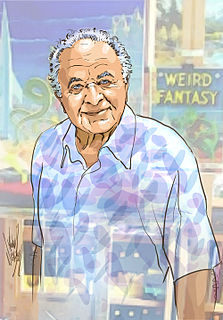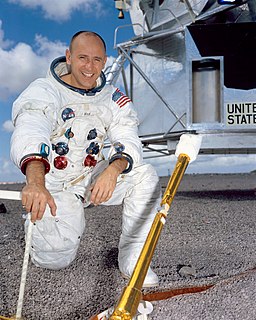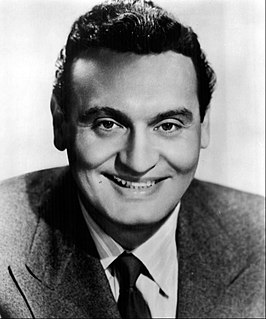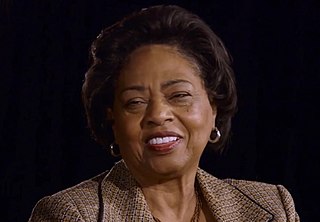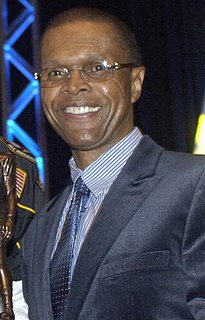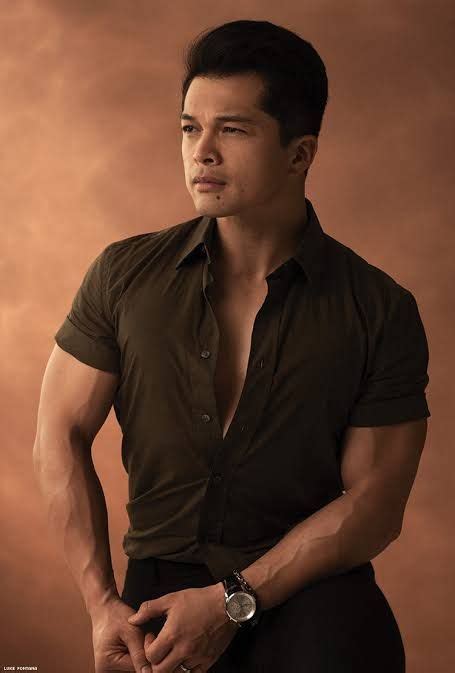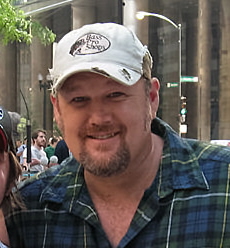A Quote by Al Feldstein
There were some television sets back in the '50s, but they were expensive. People would gather at the rich guy's apartment down the hall to watch Milton Berle on his 10-inch black-and-white screen.
Related Quotes
If intelligence were a television set, it would be an early black-and-white model with poor reception, so that much of the picture was gray and the figures on the screen were snowy and indistinct. You could fiddle with the knobs all you wanted, but unless you were careful, what you would see often depended more on what you expected or hoped to see than on what was really there.
In Harlem, for instance, all of the stores are owned by white people, all of the buildings are owned by white people. The black people are just there - paying rent, buying the groceries; but they don't own the stores, clothing stores, food stores, any kind of stores; don't even own the homes that they live in. They are all owned by outsiders, and for these run-down apartment dwellings, the black man in Harlem pays more money than the man down in the rich Park Avenue section.
There were colored and white waiting rooms everywhere, from doctor's offices to the bus stations, as people may already know. But there were actually colored windows at the post office in, for example, Pensacola, Florida. And there were white and colored telephone booths in Oklahoma. And there were separate windows where white people and black people would go to get their license plates in Indianola, Mississippi. And there were even separate tellers to make your deposits at the First National Bank in Atlanta.
It's a bummer interracial love is still such a big deal. To me, it's quite normal. I grew up seeing couples that were interracial. Who cares if it's a black guy and white girl, or an Asian guy and white girl, etc.? Odds are, every combo exists out there somewhere so why not put it on the screen? Shouldn't art imitate life?
One of my earliest recollections is being woken up at some ungodly hour in the morning by my parents and sat in front of the fairly new black and white television, watching a grainy image of a man in a white suit climbing down a ladder. It was the first moon landing, and I became a sort of spaceman, as many kids were.
I learned to slip back and forth between my black and white worlds. One of those tricks I had learned: People were satisfied so long as you were courteous and smiled and made no sudden moves. They were more than satisfied; they were relieved -- such a pleasant surprise to find a well-mannered young black man who didn't seem angry all the time.
The strange thing about my life is that I came to America at about the time when racial attitudes were changing. This was a big help to me. Also, the people who were most cruel to me when I first came to America were black Americans. They made absolute fun of the way I talked, the way I dressed. I couldn't dance. The people who were most kind and loving to me were white people. So what can one make of that? Perhaps it was a coincidence that all the people who found me strange were black and all the people who didn't were white.
I used to watch those syndicated, black-and-white Country Music Television shows from the '60s with my dad. And all of those people that played on our television set, they just felt like family to me. And I believed in my heart, as a little kid, that I would be doing that someday and I would know all those people and we would be friends.
I was always a fan of the old-style comics. I loved vaudeville. I loved Milton Berle, Dick Shawn, Phyllis Diller, Don Rickles, Charlie Callas, all those guys. Hilarious. I love the Bing Crosby and Bob Hope movies, and Abbott & Costello. My television influences were 'Monty Python's Flying Circus,' 'Benny Hill,' and 'Hee Haw.'
I would say I'm black because my parents said I'm black. I'm black because my mother's black. I'm black because I grew up in a family of all black people. I knew I was black because I grew up in an all-white neighborhood. And my parents, as part of their protective mechanisms that they were going to give to us, made it very clear what we were.
There was a Yale even before Larry [Kramer] and I got there, and there were three designations of students: "white shoe," "brown shoe," and "black shoe." "White shoe" people were kind of the ur-preppies from high-class backgrounds. "Brown shoe" people were kind of the high school student-council presidents who were snatched up and brushed up a little bit to be sent out into the world. "Black shoe" people were beyond the pale. They were chemistry majors and things like that.
